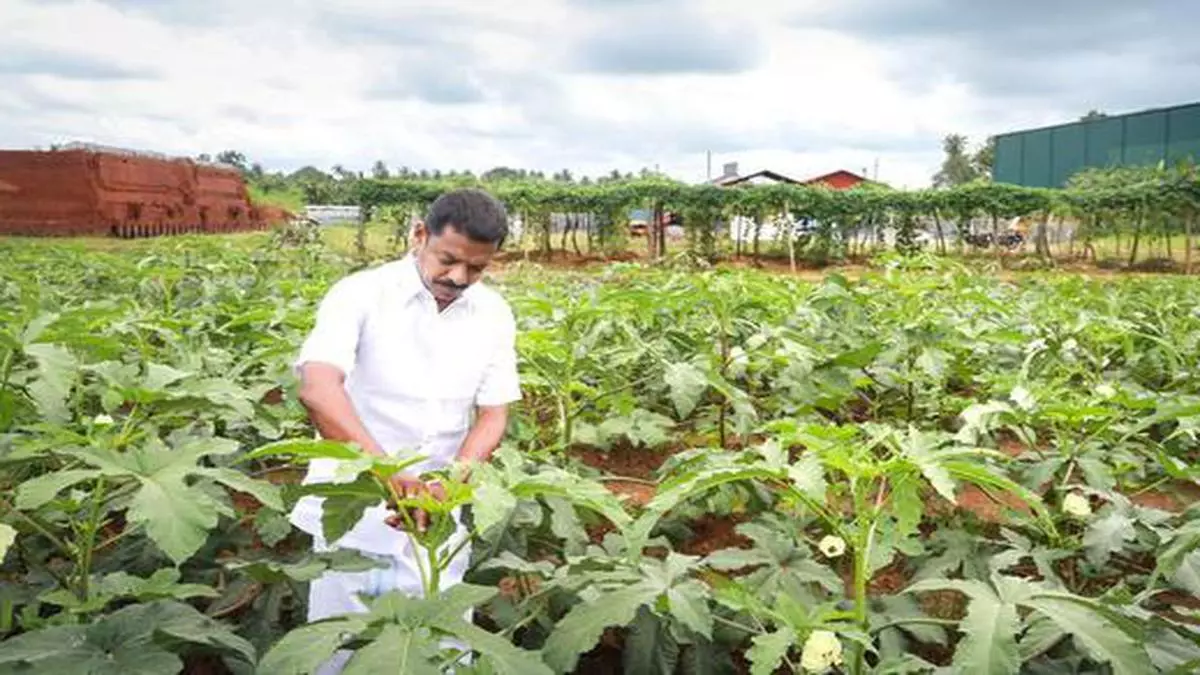Organic Farming: A solution towards sustainable agriculture
India being an agricultural land has contributed a large percentage of the country’s economy. While in the past decades, urbanization and globalization have reduced agricultural production with the use of chemical fertilizers, again leading the country towards organic farming.
In the world’s organic agricultural land yield, India ranks fifth and leads in terms of the total number of organic producers. The center is constantly making relentless efforts in establishing organic farming as a major practice among farmers through the provision of subsidies and schemes. It is pushing initiatives such as the National Program for Organic Production which includes the accreditation of certification bodies, the formulation of standards for organic production, and the promotion and marketing of organic agriculture under the Food and Agricultural Export Development Authority (APEDA).
fertilizer subsidy burden
This accreditation enhances the international recognition of organic products produced in India. Moreover, there is a huge burden on governments to provide subsidies to farmers on the purchase of chemical fertilizers which has increased many-fold in the past decade. In order to meet this challenge, organic farming is the only way out.
It can emerge as an effective alternative to chemical fertilizers, which are paid exorbitant prices through their import and cause harmful effects on the climate as well as on the health of citizens. In addition, private players also contribute greatly to advocating organic farming. All these efforts are being paid to position organic farming as a solution and way towards sustainable farming.
Organic farming is the most sustainable method of farming that can restrict the use of chemical-containing fertilizers and pesticides and promote the use of naturally grown food products. In simple terms, it can replace synthetic fertilizers.
Climate change mitigation
Organic farming is good for the environment as its practices include a focus on maintaining soil health, conserving water and promoting biodiversity. Undoubtedly, the use of chemicals and synthetic fertilizers does indeed have negative effects on the ecosystem resulting in rapid climate changes but can be reversed by promoting organic farming. The harmful effects of chemical fertilizers include soil degradation, water pollution and damage to wildlife. Therefore, through the use of natural methods such as crop rotation, composting, and biological pest control, organic farming ensures that the soil remains fertile and healthy, while also reducing the impact on the environment.
Reduces carbon emissions and greenhouse gas emissions
Organic farming is key to reducing greenhouse gas emissions and reducing your carbon footprint because it does not allow any chemical consumption. Numerous studies have shown that compared to conventional farming, organic farming practices consume approximately 45 percent less energy and fume pesticides, which are likely to be used on strawberry fields that can emit highly harmful nitrous oxide resulting in adverse weather conditions. However, this can be avoided by applying organic farming methods and drastically reducing the use of chemical fertilizers.
Supports the Sustainable Development Goals
Organic agriculture has huge potential to support and advance the Sustainable Development Goals set by the United Nations and participating countries around the world. These Sustainable Development Goals have greatly emphasized the critical need for climate action and good health and well-being. To achieve the goal of completing the Sustainable Development Goals by 2030, organic farming can play a pivotal role in many ways, but most importantly it can pave the way for eliminating the widespread use of chemical fertilizers, providing natural food for consumers, and broadening support for sustainability. development goals.
Farmer friendly
. First, it reduces the cost of chemicals and synthetic fertilizers because only compost or bio-fertilizer is poured into the soil. Organic farming prevents overuse of these chemicals which leads to soil degradation and reduced crop yields, ultimately leading to financial ruin for farmers. Organic farming practices are more cost effective in the long run, as they are based on natural methods that are less expensive and help maintain soil fertility. Moreover, organic farming provides farmers with a stable income, as the demand for organic products continues to grow.
Adding additional years to a person’s life
Numerous research has shown that the chemicals used in conventional farming have been linked to a range of health problems, including cancer, birth defects, and respiratory disease resulting in fewer healthy years of life. This is where organic farming comes in to add an extra year to a person’s life. Since organic farming practices do not involve the use of synthetic chemicals, making food produced in this way is safer to consume. Besides, organic produce is also richer in nutrients and antioxidants than conventionally grown produce.
Organic farming has emerged as a game changer for agriculture in India and has effectively disrupted the steady infiltration of chemical fertilizers. Certainly, this has huge potential to transform the agricultural industry as it is well suited to India’s climate and soil conditions, further helping farmers in improving their yields while protecting the ecosystem at the same time. Benefiting the environment, health and farmers and promoting healthy soil, flora and fauna, organic farming can pave the way for sustainable farming.
The author is the founder and CEO of CEF ORGANICS (CEF GROUP).
